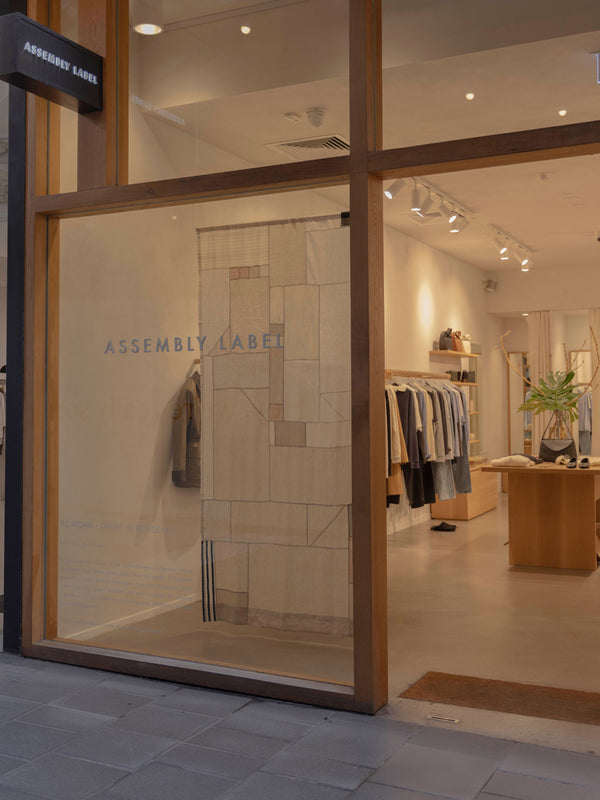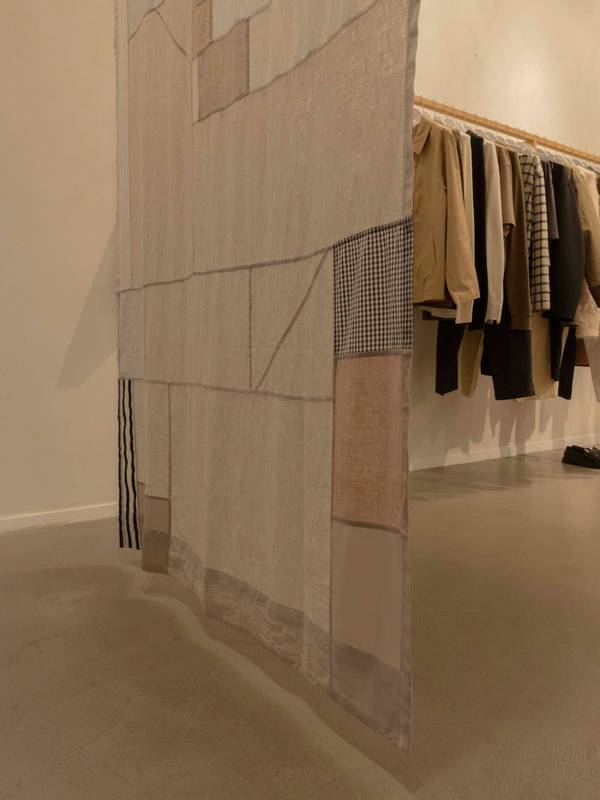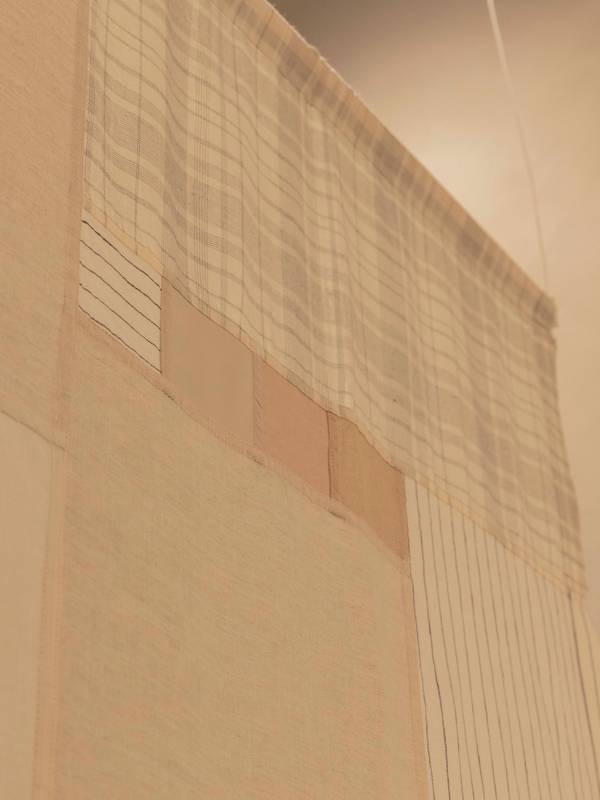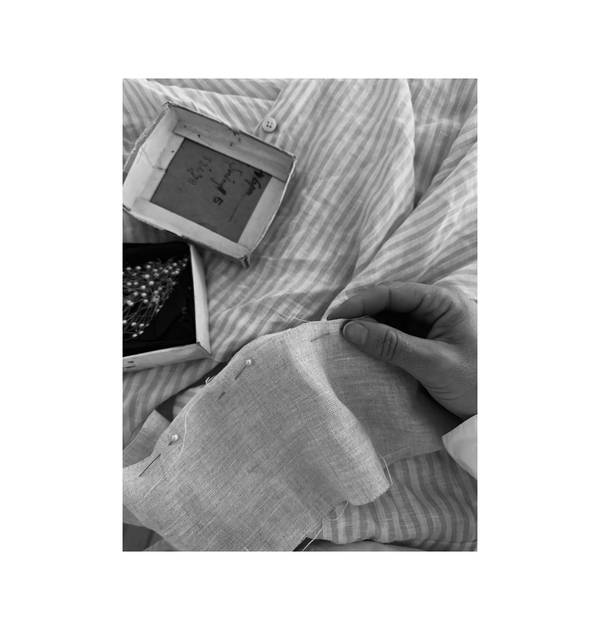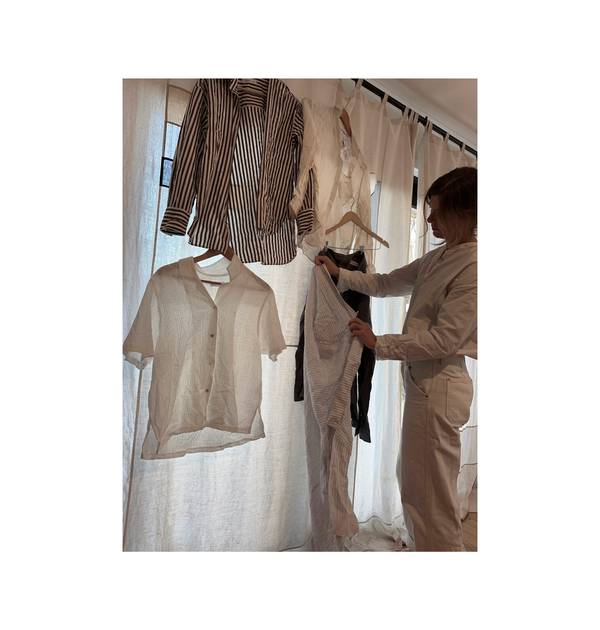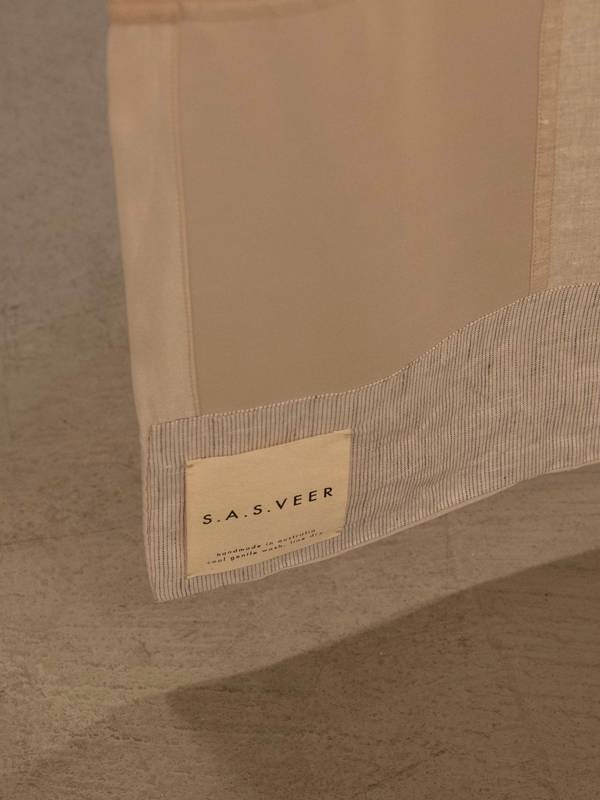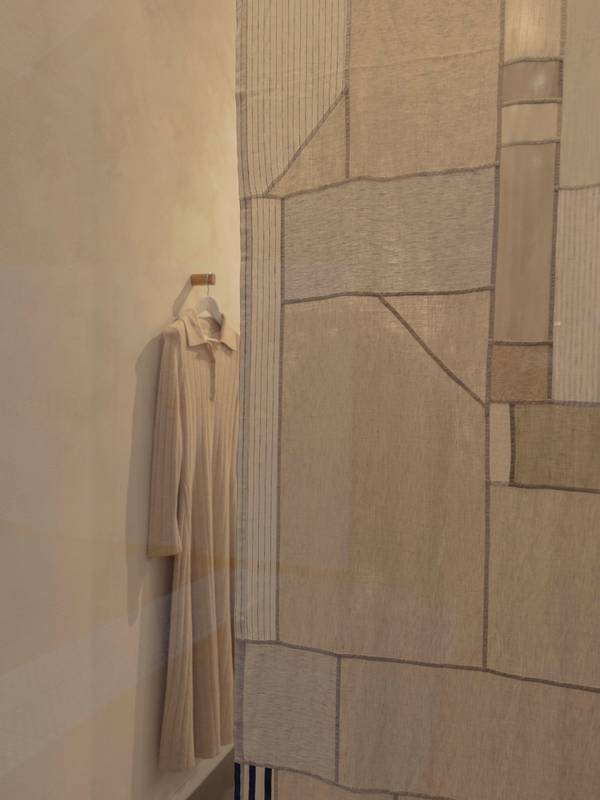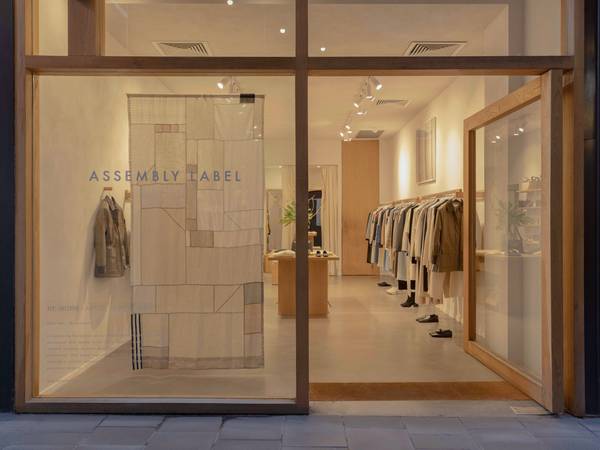Sally Veer, an Australian textile and water colour artist, creates unique bed linens, curtains, and home art pieces from hand. Passionate about a circular economy, she recycles and reuses apparel to form the foundation for each of her artworks.
To celebrate our Re-Worn capsule collection launch, we partnered with Sally to craft a one-of-a-kind textile artwork from recycled Assembly Label clothing. We asked Sally to reflect on her own principles of circularity and share with us her creative process.
